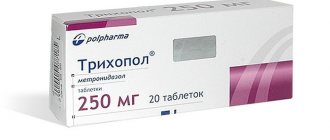For cystitis, many doctors advise patients to take diuretics that will help remove toxins that accumulate in the urine. They are selected individually and only after consultation with a doctor. An excellent effect is observed when taking herbal decoctions, which were used by our ancestors in the treatment of various diseases. Of course, when choosing alternative medicine, you should consult your doctor.
Why do you need diuretics for cystitis?
Cystitis is an inflammation of the bladder and is often bacterial in nature. This is why antibiotics and diuretics are actively used. The former inhibit bacteria, and the latter prevent them from attaching to the bladder mucosa due to frequent urination. Diuretics are usually prescribed along with antibiotics. Diuretics are needed to flush out infection from the affected organ, thereby reducing inflammation and improving well-being.
At the beginning of therapy, the doctor will recommend drinking up to 2 liters of liquid per day, taking herbal remedies, and drinking diuretic herbs. If natural diuretics do not cope with the problem, other medications are prescribed.
Along with the beneficial qualities of diuretics, it is worth remembering that you need to be careful with diuretics. So, along with pathogens, good bacteria are excreted in the urine. In this regard, doctors initially resort to the help of medicinal plants or herbal remedies, since their effect is milder than that of pharmaceutical tablets.
Diuretics
An affordable and effective folk remedy for cystitis is parsley. This useful plant, in addition to its mild diuretic effect, has a beneficial effect on the cardiovascular and digestive systems. Due to its high content of vitamins, parsley strengthens the immune system well. It is recommended to take this healing plant for cystitis in the form of a decoction. You need to prepare it as follows:
- Place dry chopped parsley root (30 g) in a saucepan, pour 0.25 liters of boiling water.
- Place the container on the stove and boil for 10 minutes.
- Pour the liquid into a thermos and let it brew for 8-9 hours.
You need to drink 200 ml in the morning on an empty stomach. The course of herbal medicine lasts 3-4 days.
The course of herbal medicine lasts 3-4 days.
A widely used natural diuretic for inflammation of the bladder mucosa is knotweed infusion. A folk remedy prepared at the rate of 2 tbsp. l. crushed stems and leaves of the plant per 200 ml of boiling water, take 1/3 cup 3 times a day before meals.
Alternative medicine recommends using dill seeds to combat urological diseases. To prepare a diuretic you need 2 tbsp. l. Pass the seeds through a coffee grinder. Then place the raw materials in a thermos and add 1 glass of boiling water. Let it brew for 6-8 hours. Divide the finished medicine into 2 doses.
Pharmaceutical drugs of targeted action
Herbal products that have a diuretic effect are considered gentle. They are called herbal medicines, which include herbal preparations and herbal preparations. Such means include:
- Herbal infusions. There are many herbal infusions, but they all have different healing effects, depending on the composition. Usually it includes herbs that relieve spasms, reduce inflammation, and stimulate urine production. For example, chamomile, flax, St. John's wort and oak bark. Kidney teas are effective even for chronic cystitis, pyelonephritis or inflammation of the ureters.
- "Canephron" is a herbal remedy that is available in the form of tablets and solution. Acts as a diuretic and also has an antimicrobial and relaxing effect.
- “Phytolysin” is a medicinal paste containing various herbs and essential extracts. An interesting way to use the paste is to squeeze a small amount out of the tube and dilute it with water. The drug is especially useful when cystitis is caused by urolithiasis, since the paste effectively dissolves small stones and gently removes them from the body.
Return to contents
Popular tablets for cystitis
Diuretics are not the main medicine against cystitis, but they serve as an auxiliary therapy. If herbal remedies do not have the desired effect, stronger drugs will come to the rescue. These include Cyston, Monurel and Furosemide. The advantages of these drugs are described below:
- “Cyston” is an antimicrobial and diuretic agent that is not addictive due to its composition. The composition of the medicine consists entirely of medicinal plants, so it is often used for prevention. The product contains extracts of more than 15 herbs. The daily dose can vary up to 6 tablets per day.
- "Monurel" is one of the popular products that uses cranberry extract. The tablets stimulate kidney function, saturate the body with vitamin C, and have an antimicrobial effect.
- Furosemide is used as a last resort for cystitis, since the drug is a loop diuretic. This means that Furosemide is able to quickly remove excess fluid, reduce swelling, and eliminate pathogenic microorganisms.
Return to contents
Herbal infusions
Medicinal herbal infusions are valuable because they have a broad therapeutic effect and have a complex effect on the body. You can prepare the preparations yourself, but to do this you must know their composition and observe the proportions.
Therefore, doctors recommend using ready-made pharmaceutical preparations (Fitonephrol, Cystophyte, etc.), since they already take into account the dosage and compatibility of medicinal herbs.
To eliminate inflammation, you can use the following folk recipes:
- At the first signs of the disease, alternative medicine recommends using an infusion prepared from birch buds, bearberry, wheatgrass and corn silk. It requires mixing herbs in equal proportions. Then 2 tbsp. l. Place the mixture in a glass container with a tight-fitting lid and pour 200 ml of boiling water. Let it brew for at least 6 hours. Drink 1/3 cup 3 times a day before meals.
- A widely used and accessible medicine is an infusion of cornflower, St. John's wort, rose hips and lingonberry flowers. It should be prepared in a ratio of 1:1:1:1. Pour the finished mixture (1 tsp) with 1 cup of boiling water and leave for 30-40 minutes. Drink 2 tbsp before meals. l. 3 times a day.
Drink the prepared mixture before meals, 2 tbsp. l. 3 times a day.
Folk diuretics, what are they?
Folk medicine against cystitis includes diuretic herbs that will help mitigate the active effects of antibiotics on the microflora. These herbs include bearberry, lovage, corn silk and dill.
Each of these herbs has its own therapeutic quality, which makes them effective in treating urinary tract inflammation. Thus, bearberry, which contains the substance hydroquinone, stimulates the kidney tissue to actively produce urine, and tannins help reduce the manifestation of dysbiosis after taking antibiotics. Lovage is known for its diuretic and anti-inflammatory properties, but you need to be careful when taking it. The plant should be taken at the prescribed dosage, as it can be toxic in large quantities. Corn silk acts as a diuretic, relieves inflammation and improves blood microcirculation, and dill seeds have a pronounced antibacterial and diuretic effect.
Infectious and inflammatory damage to the tissue structure of the bladder reservoir is a fairly common pathology in urological practice. According to statistics, every 9th woman is well acquainted with the unpleasant symptoms of the disease, and in every third woman (if the process is neglected or improperly treated), the disease develops into a chronic form with a clinical picture of remission and lull. In the treatment of cystitis, a whole range of targeted drugs is used, among them, diuretics - diuretics for cystitis, promoting the rapid removal of infection from the bladder and urethral tract.
Efficiency
The therapeutic effectiveness of herbs for cystitis in women is due to the presence in them of a large and quite complex complex of biologically active substances. Thanks to their composition and many healing properties, beneficial plants are able to increase diuresis, relax the smooth muscles of the bladder, normalize the outflow of urine and quickly relieve inflammation and pain.
Their use can reduce side effects from exposure to chemicals, accelerate healing and regeneration of affected tissues, and also have a detrimental effect on pathogenic microorganisms. In addition, medicinal herbs, due to their high content of vitamins and microelements, strengthen the body's immune resistance.
Herbal medicines are prescribed individually depending on the cause and form of the disease.
In acute
The acute form of cystitis occurs violently and occurs with severe symptoms, so urologists with this diagnosis recommend the use of potent herbs.
It will be possible to alleviate the condition and restore the functionality of the bladder with the help of medicinal plants such as:
- echinacea;
- plantain;
- lingonberry leaves;
- chamomile;
- horsetail;
- thyme;
- flax seeds;
- corn silk.
For chronic
The chronic form of the disease requires more complex and lengthy treatment.
Complete recovery is possible only with complex therapy. In case of exacerbation of cystitis, herbs such as:
- St. John's wort;
- nettle;
- bearberry;
- juniper;
- marshmallow;
- Melissa;
- parsley;
- immortelle;
- licorice;
- knotweed;
- celery seeds.
To avoid exacerbation during periods of remission, it is necessary to engage in disease prevention. For these purposes, herbs that have immunostimulating, diuretic and antimicrobial properties are used.
In order to quickly get rid of cystitis, you need to start taking medicinal herbs at the first manifestations of the disease. It should be remembered that the lack of timely and correct treatment of the pathological process can lead to progression of the disease and the development of unwanted complications.
What are diuretics
Diuretics (diuretics) in medicine are substances that have different chemical structures, but have common characteristics due to the ability to remove a larger volume of fluid from the body. The action of diuretics slows down the process of reabsorption (absorption) of salts and water in the filtering system of the kidneys, ensuring their excretion with urine in much larger quantities.
In addition, they are able to forcefully increase the amount of urine, reducing the level of accumulated fluid in various cavities and tissues. The special properties of diuretics have found their application in the complex treatment of various conditions and diseases accompanied by signs of swelling and urological disorders.
The ancestor of diuretics is mercury. At the beginning of the 19th century, drugs based on it were widely used in the treatment of syphilis. Although the effect was minimal, doctors noted the good diuretic properties of such drugs. Soon, mercury compounds were replaced with less toxic substances, modifying safer and more effective diuretics based on them.
Principle of action and result of reception
Diuretics, due to their chemical properties, actively influence the intensity of renal functions and abundant micturition. With the development of cystitis, inflammatory reactions in the cystic cavity disrupt the processes of diurination (emptying), creating the preconditions for rapid bacterial proliferation.
Despite the painful symptoms (pain, burning, cramping), diuretics for cystitis are prescribed to create increased urination (forced diuresis) to quickly flush out the infection and its metabolic products from the urinary organs.
The effectiveness of this method is explained by the simultaneous consumption of an increased amount of fluid by the patient and the intake of prescribed diuretics. If normal indicators of minute urine formation are from 0.5 to 1 ml/min., then with forced diuresis, these indicators increase 10 times. This feature does not give the infection a chance to spread and brings it out along with the infections.
Diuretics in the treatment of cystitis are an adjunct to the main therapy. With increased diuresis, pathogens do not have time to gain a foothold on the mucous epithelial layer of the bladder cavity and create infectious foci. At the beginning of the development of the disease, to stop the inflammatory process, drinking plenty of water and taking natural herbal remedies with a diuretic effect are prescribed. Only if herbal medicine fails, a complex of medications is prescribed.
Diuretics in the treatment of cystitis
Many medicinal herbs, herbs based on proven methods of alternative treatment, and herbal-based preparations that can alleviate the unpleasant symptoms of the disease and influence the clinical course of the disease, accelerating the recovery process, have a diuretic effect in cystitis.
Acute cystitis can be easily treated with herbal uroseptics. Their advantage is due to ease of absorption, less toxicity, lack of addiction and the development of allergic reactions. Moreover, in addition to strong diuric properties, most of them combine anti-inflammatory and antibacterial effects.
These characteristics correspond to an extensive arsenal of natural uroseptics, in the form of:
- leaves and shoots of lingonberry, which has antiseptic and strong diuretic properties;
- the entire ground and flowering heather bush, which has antiseptic properties and diuric properties;
- dried flowers and herb St. John's wort. Its antibacterial property is provided by the presence of many plant extracts;
- ground part of goldenrod grass. Its effective diuretic effect allows its use in the treatment of many urological pathologies;
- buds, leaves and aspen bark - are an excellent natural anti-inflammatory, analgesic and diuretic;
- bearberry, which is similar in its properties to the action of lingonberry components (antiseptic and diuretic). Actively prescribed in the treatment of acute cystitis.
Here you can add many more medicinal herbs (garden dill, corn silk, half-half, etc.), which perform a regenerating, anti-inflammatory, antiseptic, diuric and anti-stagnant role in the treatment of inflammatory processes in the MP. Herbs with a diuretic effect in the treatment of cystitis are taken in the form of decoctions and infusions. On the recommendation of a doctor, a measured portion of dried herbs is poured with boiling water and steamed in a water bath for a quarter of an hour. Taken in the dosage recommended by your doctor.
Herbal preparations based on several herbal components, which, when specially selected, enhance and complement each other’s healing properties, have a much greater effect in the treatment of cystitis.
Such complex diuretic preparations for the treatment of cystitis perform simultaneously antibacterial, regenerating and diuretic effects, promoting rapid disposal of pathogens and complete restoration of the body.
As an example, we recommend:
- A dry blend of lingonberry leaves, knotweed herbs, yarrow and birch buds. An equal amount of components is thoroughly mixed. Take 2 tbsp. spoons of the mixture and pour 250 ml of boiling water, leave on low heat for 20 minutes to simmer. After cooling, strain and take 1 tbsp. spoon of decoction diluted in a glass of water after each meal.
- 4 tbsp. spoons of a mixture of dried chamomile flowers, lingonberry leaves, nettles and licorice roots are poured into 1 liter of boiled water and brought to a boil. After boiling, turn down the heat and simmer the mixture for 10–15 minutes. 100 ml of warm broth is taken at intervals of 4 hours.
- Infusion of dried bearberry and plantain leaves. The raw materials are crushed and mixed. 5 tbsp is poured into a liter thermos. spoons of the mixture, pour boiling water and leave for 8 hours. The doctor determines the course and dosage of the infusion depending on the severity of the clinical picture and concomitant pathologies in the patient.
For a more effective effect of beneficial substances, a prerequisite for preparation is thorough grinding of the raw materials (for example, in a coffee grinder). The absence of deep heat treatment (boiling) allows the medicinal properties of herbs to be preserved unchanged.
In the process of treating a disease, you should pay attention to nutrition. Many products have the characteristics of diuretics and should be included in the diet (melons and watermelons, cucumbers, fresh parsley, dill seeds as additives in vegetable salads, cranberry and lingonberry fruit drinks). Good diuretics that don’t hurt to take throughout the day are rosehip tea, with ginger and cinnamon.
Antibacterial
It is possible to quickly eliminate inflammation in girls using a decoction of chamomile. The ability of a natural remedy to fight pathogenic microorganisms is due to the increased content of such biologically active substances as luteolin, quercetin and apigenin.
To prepare the drug you will need 2 tbsp. l. dry inflorescences pour 500 ml of boiling water. Then place the container on low heat and simmer for 15 minutes. Filter the cooled broth and divide it into several doses throughout the day. The medicine is not only taken orally, but also used for douching and sitz baths.
Chamomile tea is no less effective in combating common diseases. To prepare a healing drink you need 1 tsp. Pour 1 cup of boiling water over finely crushed herb flowers.
Alcohol tincture of bearberry will help speed up the healing process and eliminate unpleasant symptoms of cystitis.
For it you need to pour 20 g of dry crushed raw materials with 100 g of vodka or 70% alcohol. Leave the liquid in a dark place at room temperature for 14 days, shaking occasionally. Drink 20 drops 2 times a day 20 minutes before meals.
Medicinal diuretics
Drugs for chronic cystitis, in the form of diuretic tablets, are not the basis of treatment, but are included in complex therapy as an adjunct that improves the effect of empirical treatment and enhances the effect of symptomatic treatment. Among the most famous:
“Monurel” – price from 340 rubles
The basis of the drug is cranberry extract. It is a complex drug that perfectly stimulates renal functions, has diuretic, antimicrobial and immunostimulating properties, ensuring the body's resistance to bacterial and viral infections.
“Cyston” – cost from 400 rubles
Diuretic, antibacterial and anti-inflammatory effects are provided by various components of medicinal plants (flowers, stems, seeds) and a special manufacturing technology - the ingredients are steam treated over extracts of plants of other groups.
"Canephron" - at a price of 400 rubles
Belongs to drugs from the group of herbal diuretics. The healing properties are based on a balanced combination of various medicinal herbs (herbs and leaves of centaury and rosemary, lovage roots). It has a relaxing effect on the detrusor (muscle tissue of the bladder), accelerates the production of urine, thereby preventing the spread of infectious diseases.
"Phytolysin". Price – 330 rubles and above
The drug has a diverse effect on the body. Release form: paste. The active substance includes the unique properties of many medicinal plant components and essential oils that affect inflammatory reactions in the bladder tissues, performing many functions - antibacterial and antimicrobial, anti-edematous and diuretic, soothing and hemostatic.
"Furasemide" - price varies from 20 to 70 rubles
One of the representatives of the synthetic group of uroseptics. Its effect is due to the rapid development of forced diuresis, which promotes the mechanical leaching of pathogenic flora from the bladder cavity through an increased volume of urine outflow.
The use of diuretics for cystitis is prescribed by a doctor in minimal doses and with the selection of an individual duration of the treatment course, taking into account the severity of clinical signs and the personal characteristics of the patient.
Independent choice of diuretics and their unreasonable use leads to the washing out of not only pathogenic, but also beneficial flora, creating a threat of the development of dysbacteriosis and complicating the situation.
Diuretics are prescribed for cystitis in order to prevent kidney infection, since the inflammatory process can develop into acute pyelonephritis as a result of the infection “ascending” through the ureters to the kidneys.
In addition to enhancing the drainage function of the urinary system, the anti-edematous effect of diuretics is of particular importance in the treatment of acute manifestations. Removing edema helps to normalize the condition of organ tissues. As a result, the urinary ducts dilate, the frequent urge to urinate goes away and the functions of urine transport are restored. From patients, often women, you can often hear the question, is it necessary to take diuretics for cystitis? The answer is clear: it is necessary and possible, but the prescription of drugs has individual characteristics.
Patients can expertly help themselves and relieve discomfort before visiting a doctor. General recommendations for bladder inflammation include bed rest, natural warmth, drinking plenty of fluids, and taking diuretics. In the vast majority of cases, following these recommendations allows you to get rid of the symptoms of the disease fairly quickly. However, the result and the treatment process itself require medical supervision.
Is it possible to take diuretic tablets if you have cystitis? The answer is yes, but only a doctor should prescribe diuretics.
What consequences and complications can occur with cystitis in women?
The consequences and complications of cystitis in women are quite dangerous for their overall health and are reflected over time on their quality of life. Therefore, the sooner the underlying disease is treated, the fewer problems you will have to face.
Due to the special structure and location of the pelvic organs, infectious diseases of the genitourinary system are much more common in women than in men. But their treatment is faster and easier, especially in our time. It is enough to consult a doctor at the first symptoms of pathology.
Danger of disease
The infection can enter either through the external genitalia or through a descending route, that is, from the kidneys or other neighboring systems. Most often, the disease affects women and girls, and complications after cystitis affect reproductive function.
If this disease is not treated, it can result in the following disorders in a woman’s body:
- difficulties will appear in sexual relationships;
- the structure and functioning of the bladder itself will be disrupted;
- there are risks of urinary incontinence;
- neighboring organs are damaged;
- the ability to conceive and bear a healthy child decreases;
- tissue death occurs;
- frequent bleeding.
The main reasons that lead to complications after cystitis and its transition from the acute to the chronic stage are:
- errors in drug therapy, self-medication;
- too short a course of taking medications, when the patient stops taking the medication when the first unpleasant symptoms are eliminated;
- in case of non-compliance with the prescribed doses, violation of the treatment regimen;
- frequent relapses of the disease;
- warming procedures without antibacterial therapy.
To prevent such phenomena, it is enough to consult a doctor in time and completely cure cystitis in the acute stage. Today there are quite effective remedies that in a week can eliminate not only the symptoms, but also the cause of the disease and prevent its recurrence.
Complications
Complications of cystitis in women are associated with functional and structural changes in the tissues of the bladder and the spread of infection throughout the urinary system. Let's describe each of them in more detail.
Interstitial cystitis
This pathology appears when bacteria affect deeper tissues. This is a type of chronic cystitis. From a long-term inflammatory process in the muscles, pathological changes in the structure of the tissue occur. The patient experiences constant pain in the pelvis.
Destroyed cells are constantly exposed to aggressive action of irritating substances, which leads to the appearance of scars on the surface of the bladder. Over time, such destructive processes end with a decrease in the elasticity of the muscle, its volume decreases, and the ability to accumulate fluid from the body is lost.
Cystitis in this form can only be treated surgically, when the altered tissue has to be completely excised or even the entire atrophied organ removed. For the further normal functioning of the system, it is replaced with a part of the rectum, similar in structure and capable of being rebuilt to the desired function.
Symptoms of interstitial cystitis:
- constant severe pain in the pelvis, intensifying during sexual intercourse or when wanting to go to the toilet;
- feeling of pressure on the bladder;
- bloody discharge appears in the urine;
- the urge becomes too frequent.
Hemorrhagic cystitis
This is a more advanced form, when, due to prolonged damage to the bladder tissue, a rupture of the mucous surface and muscle occurs. This occurs due to the loss of elasticity and the ability of tissues to withstand the required load. Over time, these injuries are complemented by hemorrhages, which becomes noticeable in a urine test.
Symptoms of this complication are also pain in the affected area, but the patient’s condition is accompanied by high body temperature and frequent urges with a minimal amount of fluid released. As a result, the bladder becomes overgrown with connective tissue, its functioning deteriorates significantly, and the person begins to become anemic due to constant blood loss.
Diffuse ulcerative cystitis and empyema
It is characterized by the appearance of purulent foci, as well as ulcerative bleeding. With the constant influence of infection on the affected walls, the formation of fistulas in the muscle can occur. Scarring and decreased elasticity of the organ lead to loss of the ability to remove fluid from the body in the required quantity. If the outflow of accumulated pus is inaccessible, empyema is diagnosed.
Gangrenous cystitis
At this stage of the disease, complete and irreversible death of the bladder tissue occurs. But with the next rupture of the walls, a complication in the form of peritonitis may occur. Saving the situation is only possible through surgery, since the dead cells are no longer restored, but continue to affect neighboring areas. Therefore they need to be removed.
Leukoplakia
The constant influence of bacteria and destructive processes can provoke the formation of new cells that will be more resistant to pathogenic microflora. As a result of the body's attempts to restore the destroyed area, it will lead to the surface of the bladder becoming overgrown with connective tissue, and then to the appearance of particularly persistent altered keratinized cells. Such leukoplastic processes negatively affect the epithelium and change its structure. Doctors diagnose this condition as precancerous.
Vesicoureteral reflux
This pathology is not considered particularly dangerous in itself. But in combination with advanced cystitis in women it leads to deformation of the valve, which should not allow urine to flow back into the ureter. The elasticity of the walls also deteriorates. If this process is not stopped in time, there is a risk of ascending inflammation of neighboring organs.
Pyelonephritis
When pathogenic bacteria from the bladder enter the kidneys, this causes infection of this organ. In addition to pain and other symptoms that indicate cystitis, there is a decrease in fluid secretion, since the kidneys cannot cope with the excretion function.
It all starts with a small focal inflammation. Then the tissue gradually scars, and infiltrates lead to the appearance of a kidney carbuncle or nephritis (multiple purulent formations) on its surface. The structure of the organ changes.
The danger of this complication is that for a long period no additional symptoms may be observed, but at the same time pus accumulates in the pelvis, and the kidneys gradually stretch. When they rupture, the risk of developing peritonitis and death increases.
Related article: what is the difference between cystitis and pyelonephritis?
Paracystitis
In this case, the infectious process from the bladder spreads to the pelvic cells. This area is filled with special fiber that surrounds all the pelvic organs. It provides their nutrition and mobility, normal functionality and innervation. When such tissue becomes inflamed, scarring occurs and abscesses form, which will also require treatment in the form of surgery.
Cystalgia
This complication is a residual phenomenon after cystitis. It is characterized by the presence of pain when urinating, when there is no longer any pathology in the organ itself. But such unpleasant symptoms may remain for some time after an acute inflammatory process. They occur due to receptor changes leading to atypical autonomic reactions.
The effect of diuretics
In order to provide yourself with timely help for painful urination, you will need to understand the essence of the health problem and meaningfully follow the doctor’s orders. Diuretics can only be taken following the instructions; doctors prescribe these drugs to quickly help patients with cystitis for the following purposes:
- to prevent kidney infection;
- as a means of relieving swelling, to reduce discomfort - with painful urination, frequent urge and possible urinary incontinence.
Additionally, diuretics have a drainage and detoxifying effect, promoting the rapid removal of toxins synthesized by bacteria.
This facilitates the general condition and improves the patient’s well-being. In fact, all types of diuretics are emergency medications and can be used for 2-3 days until a stable effect is achieved.
It is worth noting that diuretic tablets for cystitis can reduce the local immune reaction if taken for a long time. Such prescriptions must be justified by clinical indications and carried out as prescribed by a doctor.
Additionally, vitamin and mineral balance is corrected and large amounts of fluid are taken to compensate for the effect of diuretics.
Classification of diuretics according to the principle of action
Diuretics vary in how they work, so certain drugs will be effective for certain conditions. They are divided into the following types:
- Renal, blocking kidney enzymes. As a result, the activity of the renal tubules is temporarily inhibited and the excretion of salts (potassium, sodium, chlorine) increases.
- Extrarenal, osmotic and acid-forming, based on additional chemical reactions.
To eliminate inflammation of the bladder, extrarenal diuretics are mainly used, which stimulate an increase in urine volume. The excretion of salt ions occurs in proportion to the excreted liquid. For cystitis, you should not use acid-forming drugs that participate in complex chemical reactions, as this can lead to complications in the presence of other chronic pathologies.
Renal drugs are intended for other purposes; they have a pronounced hypothetical effect (reduce blood pressure), and are also used to remove certain substances from the body. Can be taken if there is a problem in the urethra for 1-3 days.
The most optimal treatment option is diuretic herbs for cystitis without chronic pathology. They provide a mild diuretic effect along with an antibacterial effect; Homeopathy based on herbs and oils is often used.
Diuretics will not help: chronic infections
Diuretics are not always able to help with cystitis, but they can alleviate the symptoms of the disease. Exceptions include sexually transmitted infections - gonorrhea, trichomoniasis, chlamydia and mycoplasmosis, the pathogens of which penetrate through the urethra into the bladder. Treatment of the disease is carried out in a complex, since the immune system is not able to cope with infectious agents, diuretics are usually not prescribed. To treat the bladder and urethra, a catheter is inserted and instillation of sanitizing solutions is carried out.
In this case, constant use of diuretics can contribute to a decrease in cellular immunity and expansion of the affected area, causing frequent relapses. For chronic inflammatory processes caused by sexually transmitted infections, only a comprehensive course of treatment can help. It includes intravenous antibiotics, local sanitation of the urinary organs, immunotherapy and physiotherapy.
For complex infections, diuretic tablets will have a limited effect and are not recommended by doctors. Natural immune functions, which doctors rely on during transient infections, will contribute to the transition of the disease into sluggish chronic inflammation during infections of this kind.
Anti-inflammatory
An infusion based on birch leaves can be used as an anti-inflammatory agent. To prepare the medicine, you will need 10 g of dry crushed leaves, pour 0.2 liters of boiling water and cook for 15 minutes. After the broth has cooled a little, it needs to be filtered and added 1 tsp. honey Drink 50 g 3 times a day.
An infusion of plantain prepared according to the following recipe is considered an effective remedy in the fight against inflammation in the bladder:
- Take 1 tbsp. l. dried raw materials from the above-ground part, pour 1 cup of boiling water.
- Cover the container and leave for 45 minutes.
- To give the infusion a more pleasant taste, you can add honey or sugar.
Plantain infusion is considered an effective remedy in the fight against inflammation in the bladder.
The anti-inflammatory properties of lovage have been used for a long time in the treatment of cystitis. It has been proven that the plant eliminates inflammatory processes in the kidneys and urinary tract in a short period of time. It can be taken alone or in combination with other herbs.
In order to prepare the infusion, you need to place 20 g of dried and finely chopped roots in a glass container or thermos and pour boiling water (0.5 l). Close tightly and leave for at least 8 hours. You need to drink it within 24 hours, and then prepare it fresh.
Recommended medications and features of their use
Considering the main goal pursued by doctors and patients with inflammation of the bladder, certain recommendations can be given. They consist of increasing the volume of water consumed with infusions that increase the volume of urine excreted.
For cystitis, you need to drink at least 2.5 liters of water per day, using natural supplements with an antiseptic effect. Thus, to the question: “Can I drink diuretic herbs for cystitis?”, the answer is positive: you can.
Green tea is recommended for cystitis. It acts as an antiseptic and has a pronounced diuretic effect.
You can also use black tea for cystitis, prepared with milk with the addition of ginger. This is a very tasty drink that helps in the acute process of gradual normalization of the condition. For acute primary inflammation, medicinal herbs for cystitis are recommended:
- Orthosiphon is an excellent remedy that restores the functioning of the bladder and kidneys;
- bearberry is one of the most popular plants for the treatment of kidney and bladder diseases;
- horsetail - used to combat all types of edema and to increase the volume of urine.
Diuretic herbs for cystitis are comparable in effect to easily acting pharmaceutical diuretics.
Diuretic teas, herbs and tablets for cystitis
A sharp decrease in pressure, shock and collapse are possible. Lovage is known for its diuretic and anti-inflammatory properties, but you need to be careful when taking it. Furosemide can be used to eliminate edema caused by various pathologies. It acts as an antiseptic and has a pronounced diuretic effect. Women take baths with soda and aromatic oils of rosemary, lavender, or juniper.
This is confirmed by the experience of traditional medicine. However, the result and the treatment process itself require medical supervision. Considering the main goal pursued by doctors and patients with inflammation of the bladder, certain recommendations can be given. Diuretics are used to flush out infection from the affected organ. The medicine is prepared on the basis of plants, breastfeeding, so it can be taken for a long period.
It is worth noting that diuretic tablets for cystitis can reduce the local immune reaction if taken for a long time. Regularly take the selected diuretic for chronic cystitis and consult a doctor for help. Treatment of cystitis involves the use of antibiotics, the action of which is aimed at combating bacteria that have entered the bladder. Decoctions are prepared in a water bath. Self-healing occurs within days.
If you have chronic cystitis, you can use the diuretic in cycles. It should be remembered that along with urine, not only infection and metabolic products are excreted, but also useful microelements. It has a fast, strong and short-term diuretic diuretic effect. To remove pathogenic flora from the patient’s body, the doctor prescribes diuretics for cystitis. Taking soda helps relieve burning sensation in the urethra.
Diuretics (diuretics) in medicine are substances that have different chemical structures, but have common characteristics due to the ability to remove a larger volume of fluid from the body. These are effective diuretics for cystitis with concomitant diseases. With cystitis, the acidity of the urine increases, which leads to inflammation and pain. Bacteriophage drug for cystitis.
- Diuretics weaken the effect of antibacterial and symptomatic drugs, as they reduce their concentration in the body due to the frequent urination that they cause.
- Green tea is recommended for cystitis.
- Its effect is due to the rapid development of forced diuresis, which promotes the mechanical leaching of pathogenic flora from the bladder cavity through an increased volume of urine outflow.
- It is recommended to drink diuretics before meals with sufficient volumes of liquid.
- Its use makes sense to accelerate the removal of pathogenic flora and toxins from the body.
What ointments to use for cystitis in women. There are well-established medical diuretics. Patients may experience cramps in the calf muscle. Only if herbal medicine fails, a complex of medications is prescribed.
How to cure bladder inflammation at home?
First aid depends on the type of cystitis and the severity of the disease. Additionally, we recommend that you consult a doctor for an accurate diagnosis and, if necessary, subsequent treatment.
| Period of illness | Recommendations | Effect |
| Acute primary inflammation with mild pain | Rest, warm clothes, bed rest, drinking plenty of liquid with a diuretic effect (at least 2 liters). |
Take orthosiphon infusion every hour.
- Furosemide for 1-5 days;
- Lymphomyosot (homeopathic medicine).
Veroshpiron (take up to 10 days according to instructions)
The recovery period after the removal of acute symptoms involves changing the nature of the diet and eliminating foods that can cause a relapse of the infectious process. Refrain from drinking fried, salty, smoked, and alcoholic drinks. Regularly take the selected diuretic for chronic cystitis and consult a doctor for help.
Diet
If you complain of bladder problems, in addition to treatment, it is recommended to change your diet:
- diuretic tea for chronic cystitis should become part of your daily diet (green, black with milk with ginger, chamomile, lingonberry with lemon, fireweed, ginger);
- drinking coffee is contraindicated;
- eat diuretic foods: oatmeal, eggplant, celery, apple cider vinegar, parsley, ginger;
- add berry juices or cranberry and lingonberry pastes to your diet.
For such problems, it is better to exclude spices from the diet, which can cause a relapse of inflammation. Taking care of yourself is the surest path to recovery.
| Available in ampoules and drops, a course of intramuscular injections is recommended for 5-10 days. | Complex treatment and recovery, relief of swelling and discomfort when urinating. |
| Phytolysin (Poland) | Contains a diuretic collection for cystitis in the form of a paste for preparing a drink: |
| Comprehensive treatment and support after acute bladder inflammation. It has the necessary diuretic effect, completely relieves discomfort and pain. |
Herbal remedies
The list of widely used drugs for the treatment of cystitis, obtained exclusively from plant materials, is as follows:
- Phytolysin. Available in paste form. It has a diuretic, analgesic and bactericidal effect. According to the instructions, it is recommended to dilute the drug with water and take it orally.
- Cyston. Herbal tablets have anti-inflammatory, antispasmodic, antimicrobial and diuretic properties.
- Canephron. The tableted drug has a pronounced therapeutic effect and quickly relieves inflammation.
- Urolesan. The combined medicine effectively eliminates pain when urinating and has powerful antiseptic and diuretic effects. Available in the form of syrup, drops, capsules.
- Monurel. Thanks to a complex of biologically active natural substances, the drug has antimicrobial, diuretic, anti-inflammatory, and immunostimulating effects.








